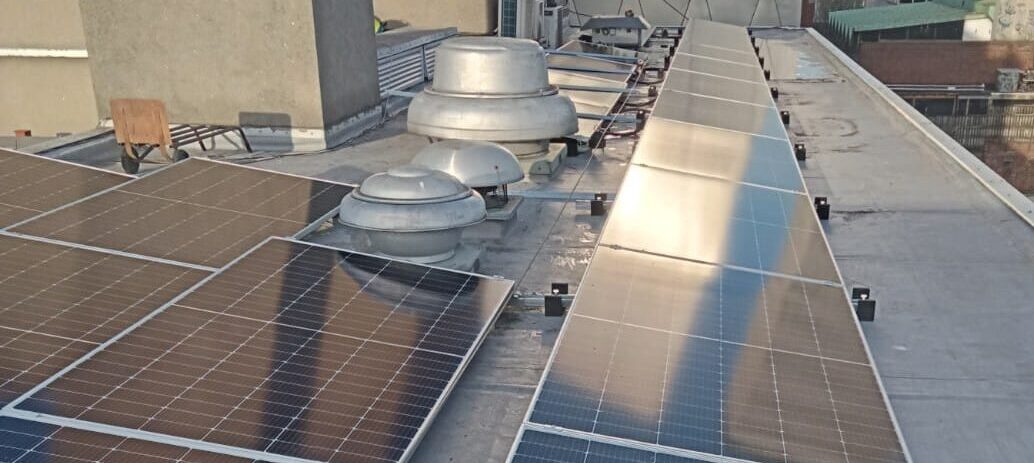The climate crisis represents the biggest challenge to society today and we are deeply cognisant of our commitment as a public sector body to reduce our carbon footprint by 2030.
Like every business, live theatre has particular raw materials, energy consumption and waste generation impacts. However, we are working across the different areas below to minimise our environmental impact.
Looking forward
- Embarking on an exciting, once-in-a-generation redevelopment of our site. This project represents the single biggest long-term contribution by the Abbey Theatre to dramatically reducing our carbon footprint.
- Committed to ensuring passive design principles are integrated with the new campus design and planning.
Culture
- Embedding a culture of sustainability awareness in collaboration with our staff, artists, audience and suppliers.
- Actively participating in Theatre Forum’s Green Arts Initiative, which offers knowledge sharing, training and networking, and data collection and sharing.
- Sustainability is a strategic priority of our forthcoming organisational strategy, including our forthcoming Sustainability Policy coming this year. The policy will help integrate sustainable values across the organisation, our activities and among our colleagues.
Energy
- We are working with the Sustainable Energy Authority of Ireland to shape our Climate Action Roadmap.
- The SEAI also conducted an annual energy management audit on our behalf, allowing us to benchmark and track our progress.
- The installation of 92 solar panels on our roof generate enough power to run the building for one month per year.
- We review all utilities suppliers annually to ensure our gas, electricity, water, and waste usage are optimised to manage our carbon emissions.
- Ongoing replacement of current lighting with LED options where possible in public areas, external poster boxes.
- Replacement of tungsten lighting for stage design/productions with LED options where possible.
- Introduction of sensor lighting in hallways throughout the building.
Hospitality
- Removed single use disposable plastic glasses and straws from our bar.
- Our current disposable glass stock is made from biodegradable corn starch and can be disposed of with food waste.
- All bar stock is in glass bottles.
- Investment in a glass crusher allows us to dispose of glass bottles in a more economical way, reducing their volume by up to 80%. The sand-like residue is utilised in other industries, such as outdoor landscaping.
- Instead of purchasing new tables and chairs, our café is furnished with props from previous productions.
- Food and coffee offer is sourced from suppliers with strong green credentials. Eg. Brady’s Coffee Company who roast their coffee sustainably in Wicklow.
Costume
- Costume Department have stopped using chemical sprays to reduce moth control and now only use green materials such as natural cloves, essential oils and pheromone lamps.
- Costume hire business have introduced reusable bags that sell to customers for €4.50 per bag to cut down on dry cleaning plastic bags.
Ticketing, communications and paper usage
- Prioritising digital over printed materials wherever possible.
- Encouraging audiences to use e-tickets and QR Codes over printed ticket stock.
- Through primary printing supplier, Colorman, using Forest Stewardship Council (FSC) sustainably approved paper for key printed materials, including brochures and pamphlets.
- Critical publications, such as the Annual Review, are printed on an on-demand basis to minimise waste.
- Other assets, such as posters, are also produced in strictly limited runs to reduce waste.
Bathrooms
- Replaced hand towel dispensers in all public bathrooms, which now dispense one hand towel at a time to encourage more sustainable use.
- Replaced soap dispensers with refillable, recyclable containers.
Administration
- All paper in the building is now 100 per cent recycled.
- Centralised PaperCut software on internal printers creates accountability for each individuals print runs.



